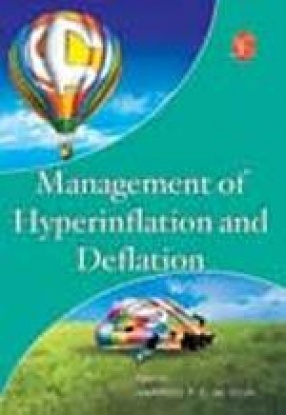The burning of fossil fuels for energy has resulted in erratic weather conditions, known as the greenhouse effect. While the world is yet to find other cheap sources of energy, burning of fossil fuels is inevitable. The fast depletion of fossil fuels is resulting in sky rocketing prices. While man cannot control the weather, he has come out with an innovative way of ensuring that related trades and industries do not get affected if it becomes erratic. This is done through weather derivatives, an innovative instrument that protects the buyers, in case they incur a loss in return for a nominal premium. Similarly, energy derivatives have been introduced, in order to ensure that buyers of fuel and refiners of crude are not affected by the ever rising prices of fossil fuels. A very interesting development has been the Kyoto protocol on emissions of harmful gases into the atmosphere. Under this protocol, the world has been divided into developed and developing nations, whereby, the former have been given a limit of emissions as an obligation to adhere to. As a result, developed nations have to buy emission credits mostly from developing nations that do not emit as much gas as they are allowed, or in other words, environmental derivatives. Weather, environmental and energy derivatives, have given a formidable opportunity to hedge funds to make clean profits by trading into these instruments. While the concept is still new, more and more funds are entering the market as they result in clear cut profits.
Weather, Energy and Environmental Hedging: An Introduction
$31.50
$35.00
In stock
Free & Quick Delivery Worldwide
All orders amounting to US$ 50 or more qualify for Free Delivery Worldwide. For orders less than US$ 50, we offer Standard Delivery at $14 per book.
ABOUT THE AUTHOR Amandio F C daSilva
Amandio F C daSilva holds an MBA and a CFA charter from the Institute of Chartered Financial Analysts of India. He is currently working as a Faculty Member with the Icfai Business School, Ahmedabad, teaching Financial Management, Financial Accounting, Security Analysis, Portfolio Management and Mutual Funds, Financial Risk Management, Investment Banking and Financial Services, Mergers and Acquisitions, Management Control Systems, Financial Control and Information Systems and Management Accounting. Prior to this, he served in the academic wing of the Icfai University as a Faculty Member, where he is involved in the preparation of textbooks and study material for the CFA, CRIM, CTM and other courses offered by the Icfai University. He is also an Associate Member of the Institute of Cost & Works Accountants of India (AICWAI) as well as a Member of the Association of Chartered Certified Accountants (ACCA), UK. To his credit he has more than fourteen years of research and industry experience.
reviews
0 in total
Review by Anonymous
Be the first to review “Weather, Energy and Environmental Hedging: An Introduction” Cancel reply
You must be logged in to post a review.
Bibliographic information
Title
Weather, Energy and Environmental Hedging: An Introduction
Author
Edition
1st ed.
Publisher
ISBN
8131407373
Length
268p.
Subjects








There are no reviews yet.